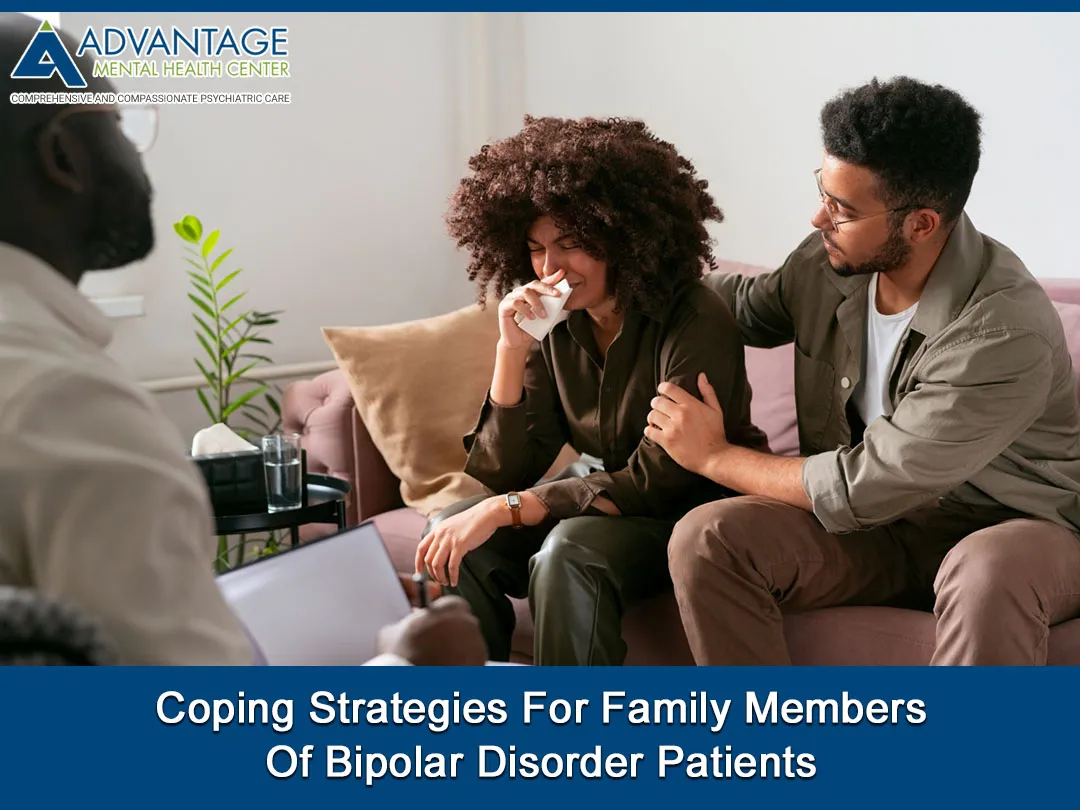Living with a loved one who has bipolar disorder can be challenging. It requires patience, understanding, and an informed approach to support and communication. For families in Clearwater, seeking guidance from a qualified psychiatrist is an essential step in ensuring both the well-being of the bipolar disorder patient and their family members. Here are some fundamental strategies and tips to help families cope and thrive.
1. Educate Yourself About Bipolar Disorder
The first step in coping with a loved one’s bipolar disorder is to understand the condition thoroughly. Bipolar disorder is a mental health condition characterized by extreme mood swings, including emotional highs (mania or hypomania) and lows (depression). These mood swings can affect sleep, energy levels, behavior, judgment, and the ability to think clearly.
Local resources can provide educational materials and workshops that help families recognize symptoms, understand treatment options, and learn about the impacts of this disorder. Knowledge is empowering and can help reduce confusion and anxiety about a loved one’s behaviors.
2. Communicate Effectively
Communication is critical in managing relationships with someone who has bipolar disorder. Here are a few tips:
- Listen actively: Show empathy and understanding without judging or offering unsolicited advice.
- Speak clearly and calmly: Avoid triggering language that might provoke extreme emotions.
- Encourage open dialogue: Make sure your loved one feels safe discussing their feelings and experiences.
Psychiatrists often emphasize the importance of communication in managing bipolar disorder effectively. They can offer specific techniques tailored to your family’s needs.
3. Set Healthy Boundaries
Setting boundaries is crucial for the mental health of both the patient and their family members. Boundaries help define what is acceptable and what is not, ensuring that no one’s well-being is compromised. Here are some boundaries to consider:
- Personal space: Everyone needs privacy and space. Respect these needs without making your loved one feel isolated.
- Emotional boundaries: Protect your emotional health by recognizing when to step back or seek support.
- Responsibilities: Distribute responsibilities fairly, considering the capabilities of the bipolar disorder patient.
A psychiatrist in Clearwater can help you understand how to set and maintain these boundaries without harming relationships.
4. Develop a Support Plan
Having a support plan in place can be incredibly helpful, especially during a crisis. This plan can include:
- Emergency contacts: Include numbers for your local psychiatrist, a nearby hospital, and a trusted family member.
- Medication management: Help your loved one manage their medication as prescribed to stabilize their mood.
- Routine checks: Regularly scheduled appointments with a psychiatrist can ensure that the treatment plan is effective and adhered to.
5. Take Care of Your Own Mental Health
Supporting someone with bipolar disorder can be emotionally draining. Family members need to look after their own mental health as well. Consider these approaches:
- Self-care: Engage in enjoyable and relaxing activities.
- Support groups: Join support groups for families dealing with bipolar disorder. Sharing your experiences can provide comfort and insights.
- Professional help: Sometimes, speaking with a professional, such as a psychiatrist in Clearwater, can help you manage your stress and maintain your well-being.
6. Celebrate Successes
It’s important to recognize and celebrate the progress that your loved one makes. This can include adhering to their treatment plan, effectively managing their symptoms, or achieving personal goals. Celebrating these successes can provide positive reinforcement and encourage further progress.
Dealing with bipolar disorder in a family member can be a complex journey, but with the right strategies and support, it can also be a manageable one. Families in Clearwater can visit Advantage Mental Health Center for professional guidance and support. By educating yourselves, setting boundaries, maintaining effective communication, and taking care of your own mental health, you can foster a supportive environment that benefits everyone involved. Celebrating successes along the way helps to encourage continued effort and progress. Remember, you are not alone in this journey; professional help is just a click away.
Picture Credit: Freepik


